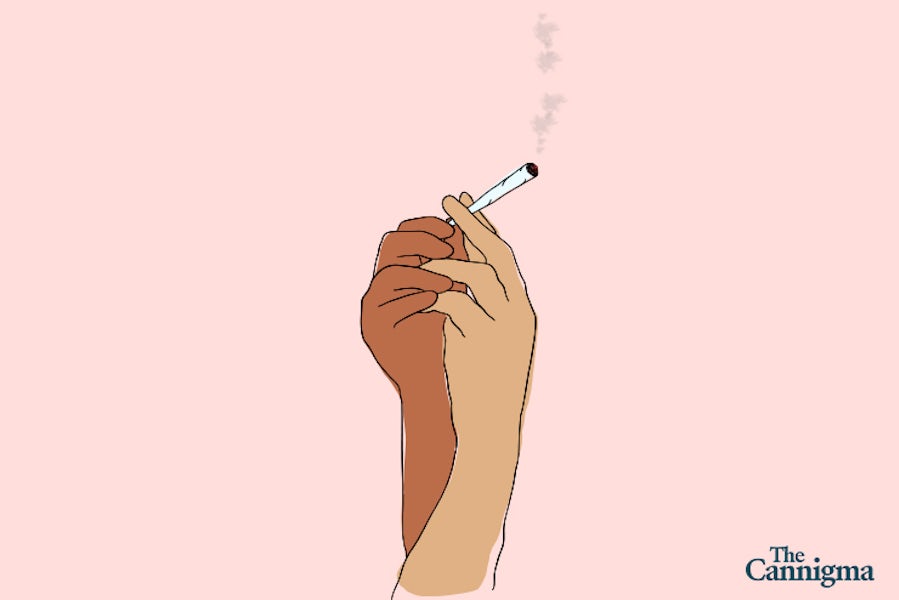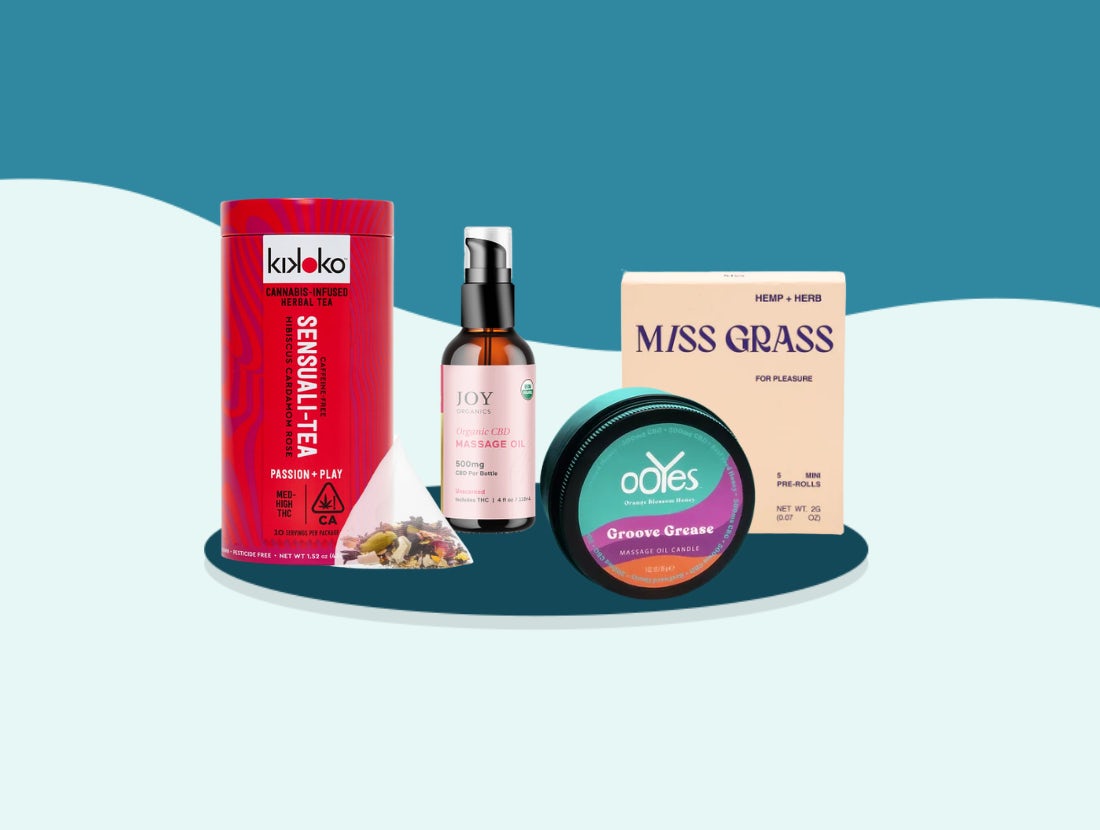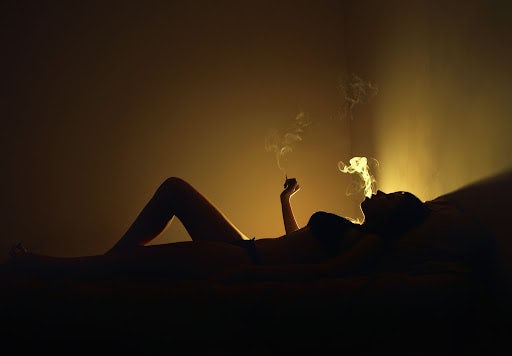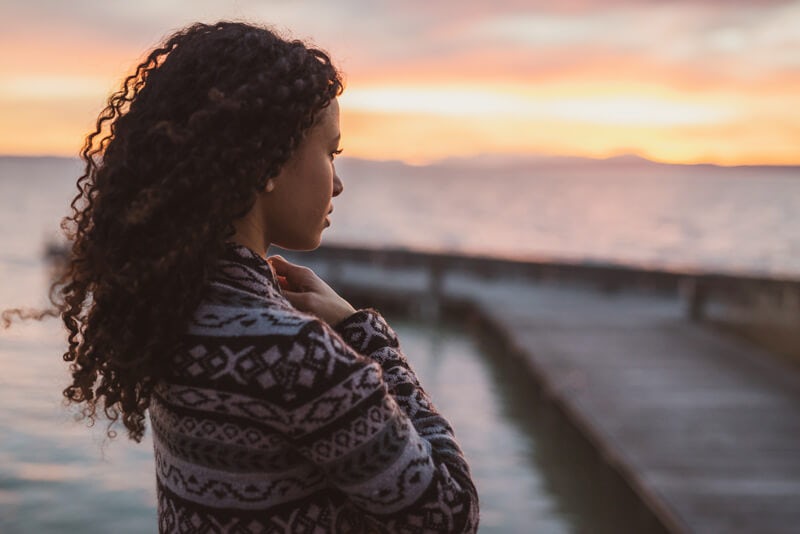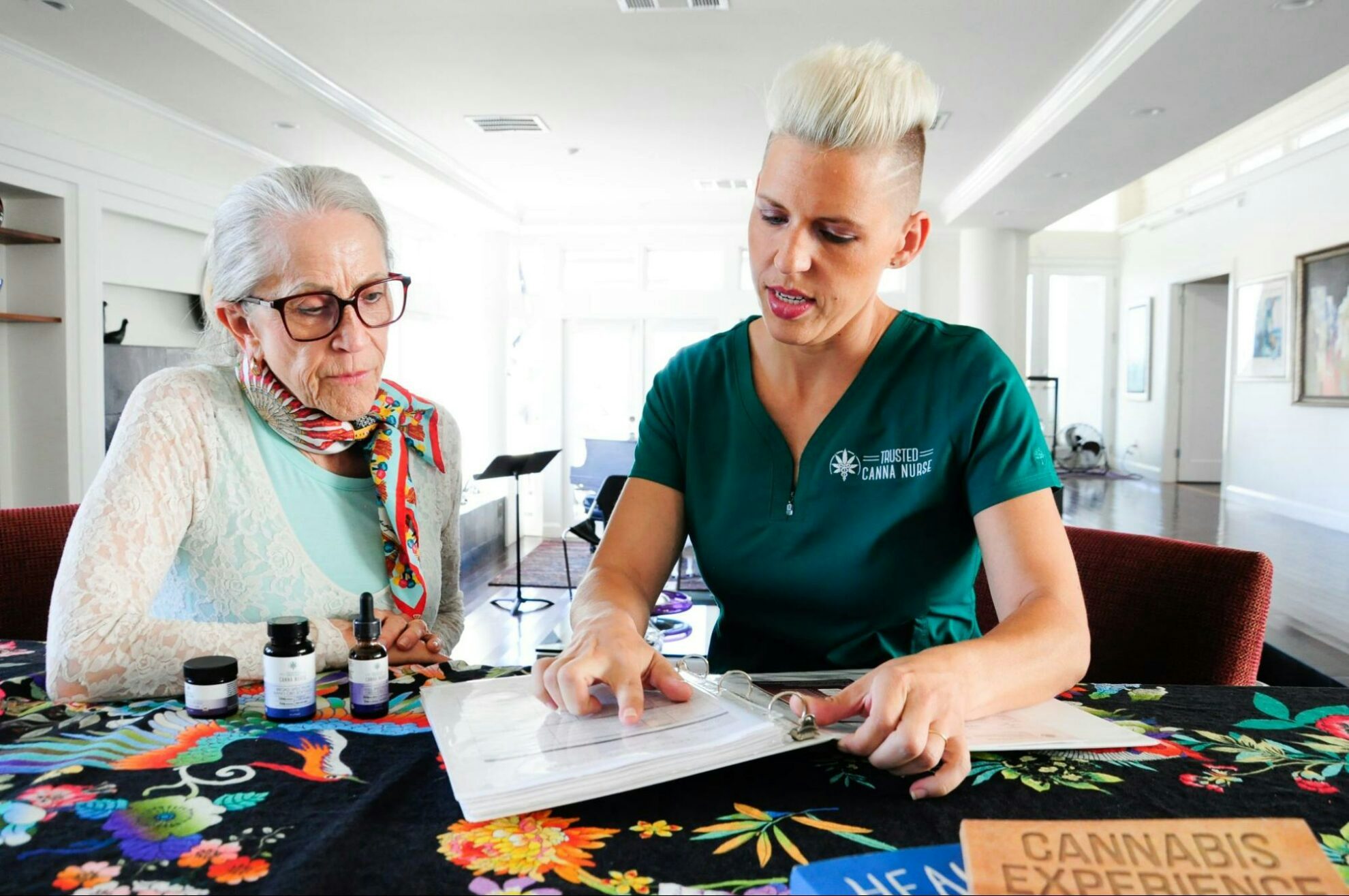The singer Billy Joel once said that there’s nothing better than good sex, but even a peanut butter and jelly sandwich is better than bad sex. Cannabis consumers often feel that weed helps their sex lives, but with so many options, how can you find the best weed strains for good sex?
Often anxiety, stress or depression are actually what’s getting in the way of your sex life – and cannabis can help to treat all of these conditions. We’ll go into more detail below, but in short, your best bet would be a Type II (balanced THC:CBD ratio) or Type III (CBD dominant) chemovar, with some combination of linalool, pinene, limonene and beta-caryophyllene.
Some chemovars that could have this type of chemical profile include strains such as:
How can cannabis help with sex
Sometimes people experience pleasurable and sensual sex naturally, with no external aids, but for many, sexual experience can be impaired by physical or emotional factors. In order to find the cannabis strains that may help improve your sex life, you need to understand the sexual response cycle, and identify what is causing sexual dysfunction.
According to the Cleveland Clinic, “the sexual response cycle is one model of physical and emotional changes that happens when you are participating in sexual activity.” There are a few cycle models, but one of the most popular models includes four stages:
- Desire
- Arousal
- Orgasm
- Resolution
Some of the issues people often have with sexual function include:
- Lack of sexual desire or interest in sex
- Inability to become physically aroused or excited during sexual activity
- Delay or absence of orgasm
- Pain during intercourse
Common causes can be divided into psychological elements such as stress, anxiety, and depression, and physical conditions such as diabetes, kidney diseases, neurological disorders, and hormonal imbalance.
This guide will focus on finding weed strains that may help with depression, anxiety, and stress — the main psychological and emotional conditions that can cause issues with desire, arousal, and orgasm.
How to choose cannabis for sex
Due to decades of cannabis prohibition and restrictions on research, the standard practice when choosing cannabis strains was to either look at the indica/sativa origins of the plant, or at the strain’s name. However, these methods can’t necessarily predict the effects of the cannabis you’ll get. The terms indica and sativa mainly refer to physical differences between types of cannabis (somewhat like green and red apples), but ignore the chemical profile of the plant, which is what actually determines the effects it will have on you.
Using strain names has the potential to be effective, but the lack of regulation created an environment where these names don’t mean much. Since they aren’t standardized, anyone can grow anything and call it whatever they wish.
This is where the chemovar approach becomes relevant. With this method, you’ll be looking at the most dominant cannabinoids and terpenes in a given cannabis plant, and choose your cannabis based on their known properties.
Broadly speaking, there are three types of cannabis chemotypes:
- Type I: High THC, low CBD
- Type II: Balanced (roughly 1:1) THC-CBD ratio
- Type III: High CBD, low THC
Often preferred by recreational users for its potency, Type I is the most common cannabis chemotype. But for improving sexual function, Types II and III may be more effective. These types may make dosing THC easier, which is why they are sometimes more popular among clinicians 1. They may also help manage the biphasic effects of THC, where lower doses could help depression, anxiety, and stress, while higher doses of THC can cause them or make them worse.
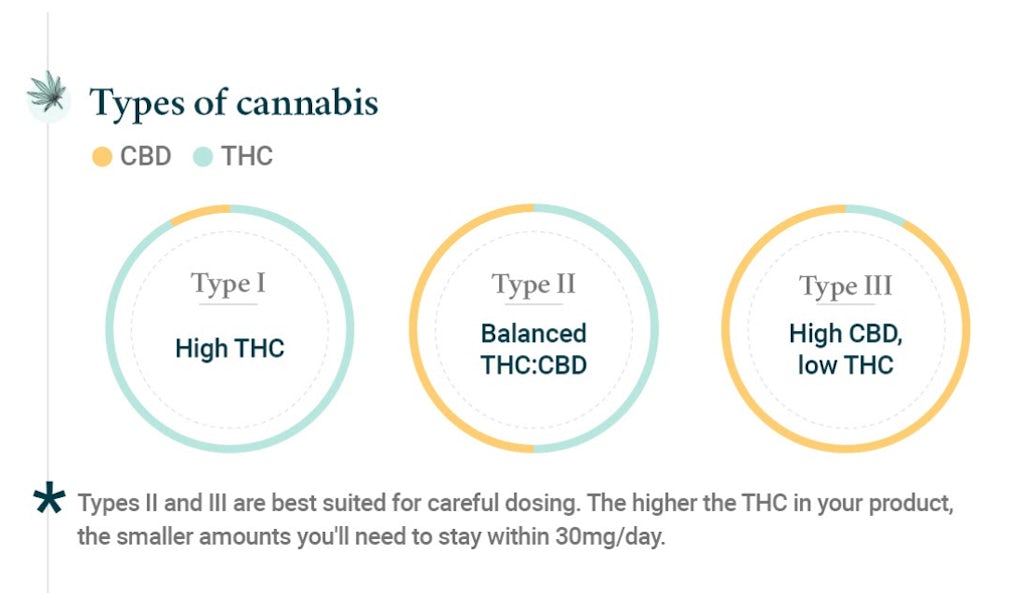
Best terpenes for sex
After choosing your preferred chemotype, the next step involves deciding which terpenes are best for you. According to the entourage effect hypothesis, terpenes could potentiate some of the effects of THC and CBD. When choosing weed for stress, anxiety, or depression, look for chemovars that contain cannabinoids and terpenes that show potential as antidepressants and stress and anxiety relievers. These include linalool, pinene, limonene, and beta-caryophyllene (BCP).
There are many studies that can speak to these effects but most of them are pre-clinical, which means they didn’t involve human participants. The best way to use this information to take it into consideration while narrowing down the possibilities when choosing cannabis products, keeping in mind that there’s still a lot we don’t know about if and how these chemovars work for sex (or more specifically — stress, anxiety, and depression).
Relieving stress
Terpenes to consider: linalool, pinene
- In a clinical study that examined the effects of inhaled linalool on 24 participants, the researchers concluded that “linalool proved to be stress-relieving as determined by heart rate.”2
- In a number of animal model studies, pinene has shown to effectively reduce stress levels of mice3.
Helping anxiety
Terpenes to consider: linalool, limonene, BCP
- Silexan is a well studied medicine that is based on lavender oil (linalool being the active ingredient). A review based on seven different clinical trials concluded that “Silexan is a safe and effective treatment in anxiety disorders.”4 However, it’s worth noting that the dose of Silexan often used is higher than what can be found in most cannabis products.
- A preclinical study that tested the anxiolytic effect of different types of limonene stated that “limonene epoxide exerts an anxiolytic-like effect on mice, and could serve as a new approach for the treatment of anxiety.”5 Limonene epoxide is a derivative of limonene.
- In a 2014 study, BCP showed to be an effective anxiolytic agent in mice through interaction with the cannabinoid receptor CB26.
Depression
Terpenes to consider: linalool, pinene, limonene, BCP
- A 2015 study in mice suggested that “linalool and Beta-pinene produce an antidepressant-like effect.”7
- A 2019 study stated that “limonene possessed an antidepressant effect in CUMS (chronic unpredictable mild stress) mice,”8 and there is also some preliminary evidence in humans to support this.
- According to a 2020 study performed on animals, “BCP may be effective in treating depression and stress related mental illnesses.”9
Cannabis strains often have one dominant terpene with concentrations above 1% and a few more with more modest concentrations between 0.1 and 1%, or a few (often two to five) terpenes in modest concentrations of 0.1-1%. That being said, terpenes are considered as being of pharmacological interest at concentrations above 0.05%, so it makes sense to see much lower numbers compared to the concentrations of THC or CBD. The Cannigma strain reviews are based on average numbers from test results of products that have similar names. But what’s really going to affect your experience is the ingredients in the one you choose.

The following list of marijuana strains (chemovars) may help you narrow down the options, but keep in mind you could also find the following products with varying chemical profiles. Therefore, it’s important to know which cannabinoids and terpenes are more likely to work for what you’re trying to achieve, whether it be to help with stress, anxiety or depression.
The most important factor to consider is the chemical profile, and not necessarily the specific name. Keep in mind that strains dominant with BCP or linalool are also more likely to induce sleep, so if this is an issue you can look for chemovars high in limonene or pinene instead.
Strains that can help with stress
The best strains for stress will be either Type II (balanced THC:CBD ratio) or III (CBD dominant with low amounts of THC). Dominant terpenes that may help with stress are linalool or pinene. Some chemovars that could have this type of chemical profile include strains such as Cannatonic and Critical Mass.
Strains that may help with anxiety
Chemovars most fitting for anxiety are also Type II and III, and may be high in limonene, linalool, or BCP. Chemovars that may have a similar profile may include Harlequin and Canna-Tsu.
Strains that may help with depression
When choosing a strain to help with depression, you should stick to Type III chemovars, with dominant terpenes BCP, limonene or linalool. Ringo’s Gift, for example, is often found to be high in CBD and low in THC, with varying amounts of limonene, BCP, and limonene. Another Type III strain that may work for depression is AC/DC, which is often high in limonene, BCP, and pinene.
Sources
- Lewis, M. A., Russo, E. B., & Smith, K. M. (2018). Pharmacological Foundations of Cannabis Chemovars. Planta medica, 84(4), 225–233. https://doi.org/10.1055/s-0043-122240
- Höferl, M., Krist, S., & Buchbauer, G. (2006). Chirality influences the effects of linalool on physiological parameters of stress. Planta medica, 72(13), 1188–1192. https://doi.org/10.1055/s-2006-947202
- Satou, T., Kasuya, H., Maeda, K., & Koike, K. (2014). Daily inhalation of α-pinene in mice: effects on behavior and organ accumulation. Phytotherapy research : PTR, 28(9), 1284–1287. https://doi.org/10.1002/ptr.5105
- Kasper, S., Müller, W. E., Volz, H. P., Möller, H. J., Koch, E., & Dienel, A. (2018). Silexan in anxiety disorders: Clinical data and pharmacological background. The world journal of biological psychiatry : the official journal of the World Federation of Societies of Biological Psychiatry, 19(6), 412–420. https://doi.org/10.1080/15622975.2017.1331046
- de Almeida, A. A., Costa, J. P., de Carvalho, R. B., de Sousa, D. P., & de Freitas, R. M. (2012). Evaluation of acute toxicity of a natural compound (+)-limonene epoxide and its anxiolytic-like action. Brain research, 1448, 56–62. https://doi.org/10.1016/j.brainres.2012.01.070
- Bahi, A., Al Mansouri, S., Al Memari, E., Al Ameri, M., Nurulain, S. M., & Ojha, S. (2014). β-Caryophyllene, a CB2 receptor agonist produces multiple behavioral changes relevant to anxiety and depression in mice. Physiology & behavior, 135, 119–124. https://doi.org/10.1016/j.physbeh.2014.06.003
- Guzmán-Gutiérrez, S. L., Bonilla-Jaime, H., Gómez-Cansino, R., & Reyes-Chilpa, R. (2015). Linalool and β-pinene exert their antidepressant-like activity through the monoaminergic pathway. Life sciences, 128, 24–29. https://doi.org/10.1016/j.lfs.2015.02.021
- Zhang, L. L., Yang, Z. Y., Fan, G., Ren, J. N., Yin, K. J., & Pan, S. Y. (2019). Antidepressant-like Effect of Citrus sinensis (L.) Osbeck Essential Oil and Its Main Component Limonene on Mice. Journal of agricultural and food chemistry, 67(50), 13817–13828. https://doi.org/10.1021/acs.jafc.9b00650
- Hwang, E.-S., Kim, H.-B., Lee, S., Kim, M.-J., Kim, K.-J., Han, G., Han, S.-Y., Lee, E.-A., Yoon, J.-H., Kim, D.-O., Maeng, S., & Park, J.-H. (2020). Antidepressant-like effects of β-caryophyllene on restraint plus stress-induced depression. Behavioural Brain Research, 380, 112439. https://doi.org/10.1016/j.bbr.2019.112439
Sign up for bi-weekly updates, packed full of cannabis education, recipes, and tips. Your inbox will love it.

 Shop
Shop Support
Support